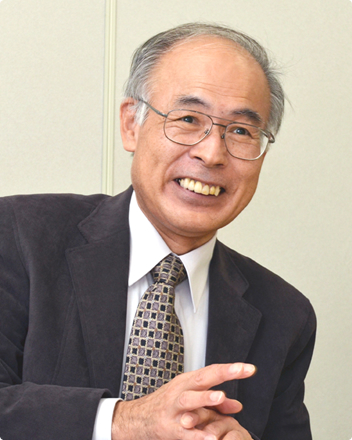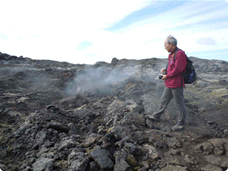Happiness is finding what you really want to do.
You need motivation that drives you, as well as the passion that fuels it.
Tell us what you think is necessary to be a true researcher.
Researchers need a strong motivation that drives them to their goals.
The brain works well if we continue our efforts. I discovered this works, even at my age. In general, the peak age of the human brain is said to be during the 30s. But it differs from one person to another. It might be during one's 50s or 60s. What is important is to maintain your motivation at a high level, and persevere with your efforts day to day.
What is important is to maintain a strong will regarding your subject of research.
Research, I think, is a behavior to seek rational and objective facts. Researchers must be ready to do whatever is required in order to achieve their goals. Most of the solutions that researchers are searching for are not yet known, so they may hit a dead end, a wall, at some point, sometime, somewhere. When this happens, the motivation to achieve the goal or obtain recognition of progress may not be sufficient to surmount the obstacle.

What is really needed to clear the wall?
It's whether you harbor an unstoppably strong passion that drives you to want to continue the research. Of course, not everyone necessarily holds such a powerful feeling. It's a happy researcher who is aware of having such power or finds a subject of research that he or she can possess such a strong passion for.
So, when do you feel you are rewarded as a researcher?
It is when I make a new discovery. It is when I find a new solution in my subject of research. It is when I come across a moment of understanding about unsolved subjects lingering from the past. Then, I feel real joy in my heart. Or it is when I have encountered, in very unexpected places, the software I programmed or the equipment I was involved in the development of. When I hear users' praise, "The software you programmed is fantastic," I really am rewarded.
I want to keep studying the world.
What are your interests?
I like reading books. Or in other words, I like to study. I have a kit of questions, developed in the United States, which enables evaluation of my talents. The kit informs me that my love of study is my strength. Recently, I've been studying psychology in my spare time.
Besides study and reading books, I'm also interested in volcanoes. My birthplace is in Miyazaki prefecture, located near the volcanic mountains of Kirishima, which is probably why I like volcanoes. I've enjoyed visiting Iceland, Tanna Island in Vanuatu and the islands of Hawaii to see volcanoes. Of course, I also like reading books about volcanology and those pertaining to geophysics.
Finally, what does mathematics mean for you?

Sawada observing volcanic rocks in Iceland.
That's a difficult question for me to answer. I liked automobiles in my junior high school days. So I bought a book related to automobile engineering, but I needed mathematics to understand it. Then I became so absorbed in mathematics that I borrowed a senior high school textbook from my brother. I loved mathematics. Mathematics was my friend and also caused me headaches. It revealed a new world anytime I opened the textbook. It is difficult to express what I feel in a word. In a way, I would say that mathematics has been, and will always be a very important part of my life. I want to be connected to mathematics in the future as much as I am today, which would be bliss.
